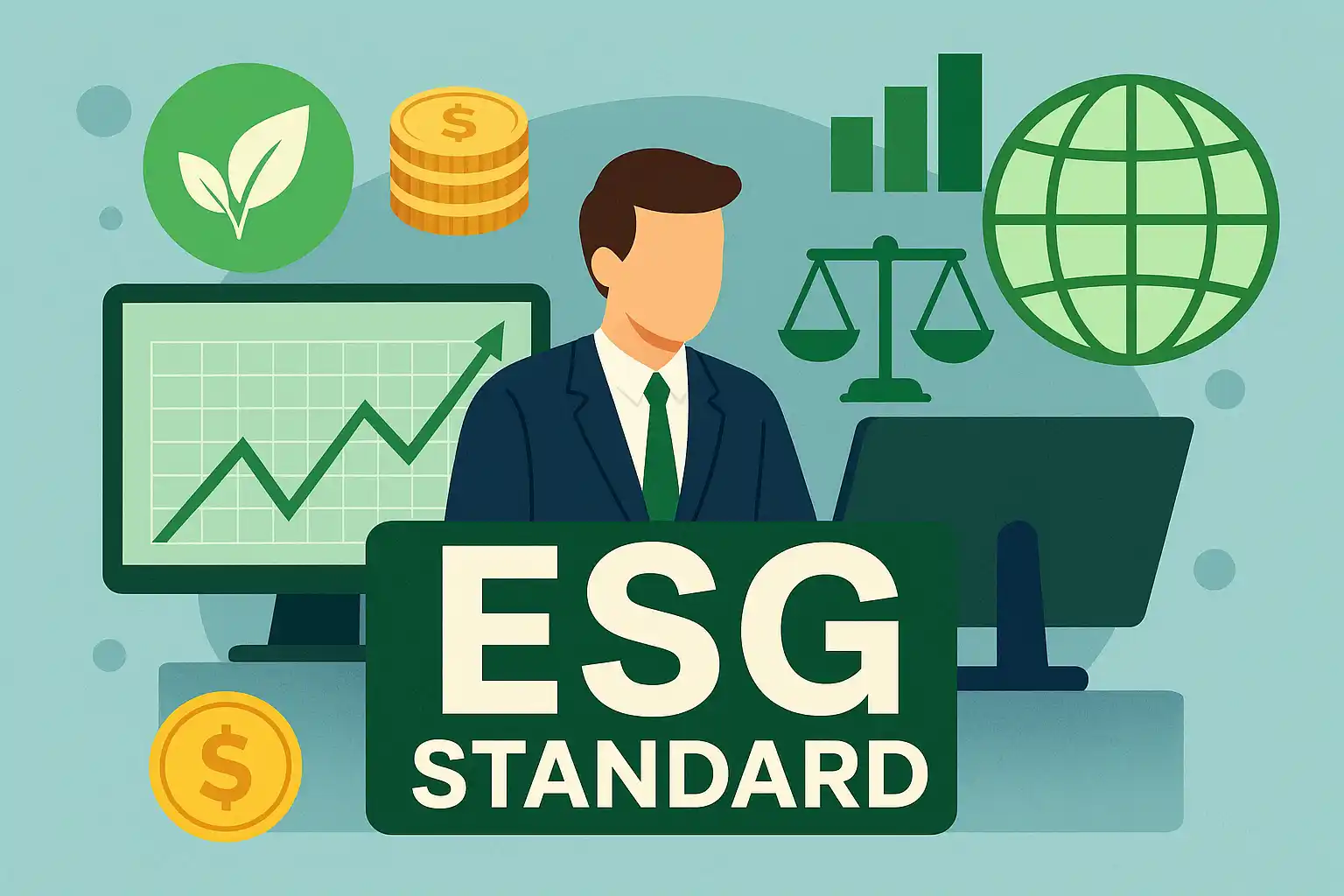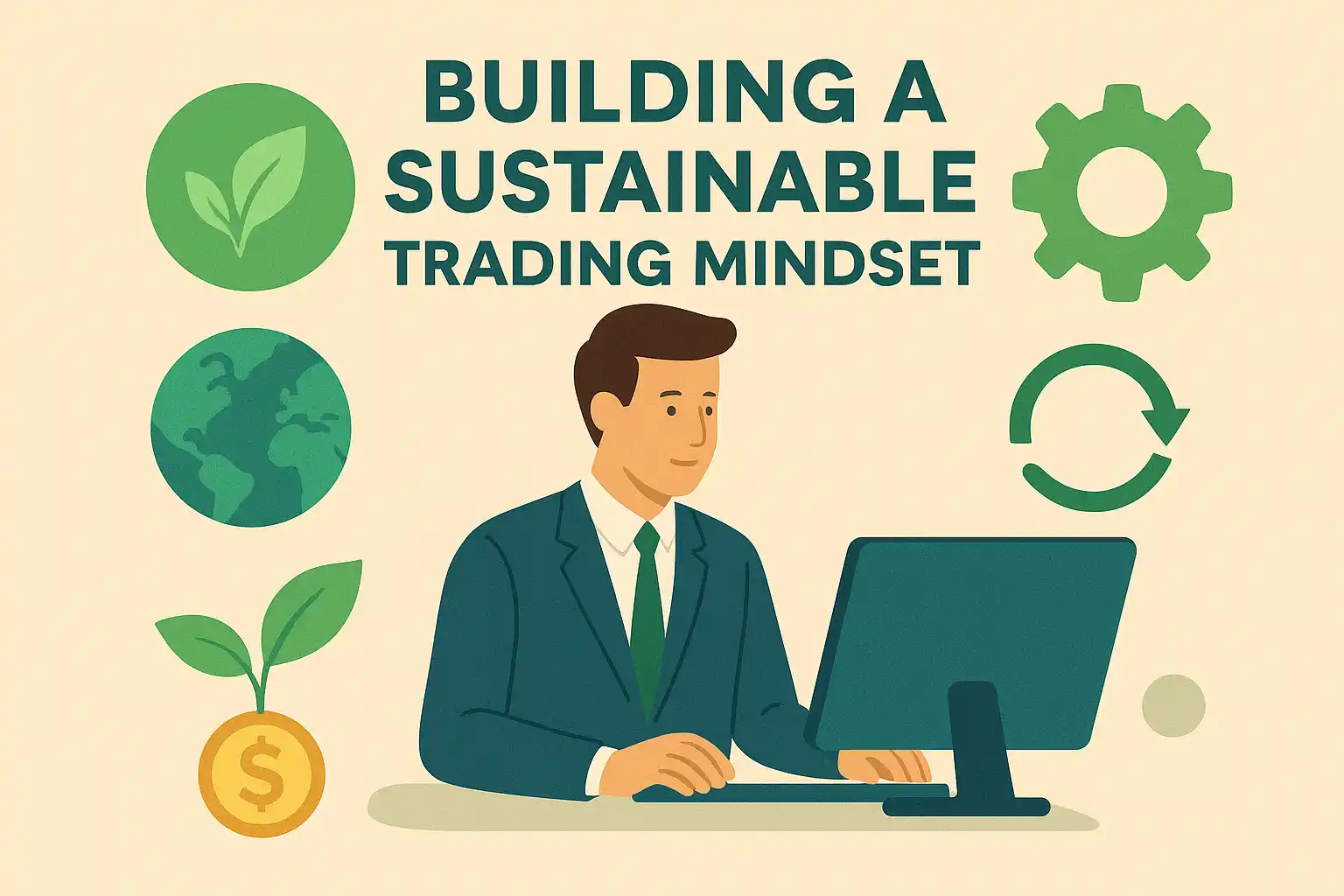Crash-Proof EA Templates You Can Use in 2026
Automated trading carries risks, but crash-proof EA templates protect capital and limit losses. These templates...

The world of financial trading is changing rapidly. For years, trading was judged only by numbers, profits, and losses. Today, however, traders and institutions are under pressure to consider broader issues such as sustainability, climate change, corporate ethics, and responsible governance. These elements fall under what is called ESG—Environmental, Social, and Governance—standards. ESG has evolved from a corporate buzzword into a global framework guiding investment decisions, shaping policies, and influencing how capital flows across borders.
For forex traders, hedge funds, and institutions, the shift to sustainability is more than just a trend. Regulatory bodies, international organizations, and investors are now demanding that trading decisions align with long-term responsibility. This article explores how ESG standards affect financial trading, the opportunities and challenges involved, and how both professional and retail traders can prepare for this new era.
ESG stands for Environmental, Social, and Governance. It is a framework used to evaluate how companies and financial entities act responsibly beyond profits.
In trading, these standards are used to assess not just companies but also financial products. For instance, forex and commodities trading is affected by ESG because currency values often shift based on a country’s energy policies, environmental regulations, or governance scandals. Investors increasingly want assurance that their money supports sustainable and ethical growth rather than harmful practices.
The financial industry is at the heart of the global economy, and its choices influence almost every sector. The adoption of ESG standards in trading matters for several reasons:
For forex specifically, currencies from nations with strong governance and climate policies may become more stable and attractive to investors, while those tied to weak institutions or unsustainable practices could face volatility.
While ESG is often discussed in equity markets, its impact on forex trading is growing. Currency values reflect the economic health and credibility of nations. When a country demonstrates strong ESG commitment—such as renewable energy policies, clean technologies, or anti-corruption reforms—its currency may attract higher demand.
For example:
Retail traders using platforms like MT4 and MT5 should pay attention to ESG-related news. Incorporating ESG into forex strategies can offer an edge since many traders still underestimate its long-term effects.
Governments and regulators across the world are embedding ESG standards into financial systems.
This regulatory wave means brokers, hedge funds, and forex platforms must adapt. Traders also need tools that align with ESG reporting and compliance.
If you’re a retail trader, you may notice that some forex brokers are now marketing themselves as ESG-conscious by promoting transparency, carbon offset initiatives, and responsible leverage policies. This isn’t just branding—it reflects the shift toward sustainable finance demanded by regulators and investors.
To trade effectively in an ESG-driven environment, traders can use modern forex tools that support responsible and efficient strategies. At GregForex.com, several advanced Expert Advisors (EAs) and courses can help align strategies with sustainable risk management.
For example:
These tools and courses not only enhance profitability but also give traders disciplined methods that fit within a world moving toward responsible investing.
While ESG adoption is accelerating, it comes with challenges.
Despite these challenges, ignoring ESG is becoming riskier. Traders who fail to adapt may face declining opportunities as markets move toward sustainable finance.
Traders can integrate ESG considerations into different aspects of trading:
For example, using advanced tools like AI Max Pro EA allows traders to build strategies that adapt to new market rules, including sustainability-driven shifts.
The global economy is interlinked with sustainability goals. External organizations and events play a critical role in pushing ESG adoption:
These sources show that ESG isn’t just a trend—it’s an established part of global financial policy.
Traders need continuous education to keep up with ESG developments. Blogs and guides can provide deeper insights. At GregForex, you can explore articles on:
Each of these topics connects to ESG standards, as they highlight transparency, governance, and responsibility in global markets.

To succeed in an ESG-driven market, traders must shift their mindset from quick profits to long-term, responsible strategies. This doesn’t mean abandoning technical or fundamental analysis—it means integrating ESG as another dimension of evaluation.
For instance, a trader analyzing oil prices must now also consider carbon policies and renewable energy growth. Similarly, currency traders must account for governance reforms or corruption scandals when predicting movements.
Adopting this mindset not only protects traders from future risks but also aligns them with the growing demand for sustainable finance.
What does ESG mean in trading?
ESG stands for Environmental, Social, and Governance standards. In trading, it refers to evaluating assets and markets based on sustainability, ethics, and transparency.
How does ESG affect forex markets?
ESG influences forex by impacting currency stability. Countries with strong ESG practices often see stronger investor confidence, while those with weak governance or environmental issues face volatility.
Are there trading tools for ESG strategies?
Yes. Modern Expert Advisors (EAs) and courses, such as those on GregForex, can support strategies that minimize risks while adapting to ESG-driven markets.
Can ESG improve profitability?
Yes. While ESG strategies focus on sustainability, studies show ESG-compliant assets often outperform long-term by reducing exposure to risks and crises.
Do regulators enforce ESG in trading?
Increasingly, yes. The EU, U.S. SEC, and international organizations are making ESG disclosures and compliance a requirement for financial entities.
Sustainability and ESG standards are no longer optional in financial trading. They represent a fundamental shift in how markets operate, driven by regulators, investors, and global economic realities. Traders who integrate ESG into their strategies will not only meet compliance demands but also build resilience for the future.
Using tools like Deep Scalper EA, Currency Pros Gold EA, and professional courses from GregForex can give traders an edge in navigating this transformation.
Financial trading is no longer just about profit. It’s about responsibility, transparency, and contributing to a sustainable future. Those who embrace ESG standards today are building the strategies of tomorrow.
Jack Henry
08/09/2025
Automated trading carries risks, but crash-proof EA templates protect capital and limit losses. These templates...
Understanding major and minor currency pairs is the first step in forex trading. Understanding major...